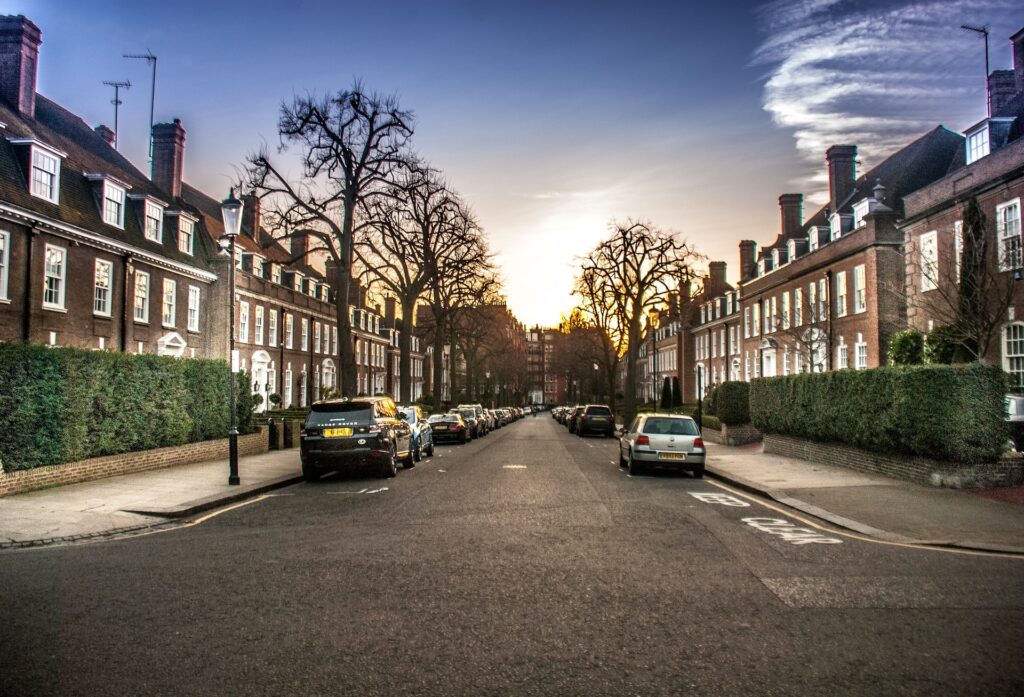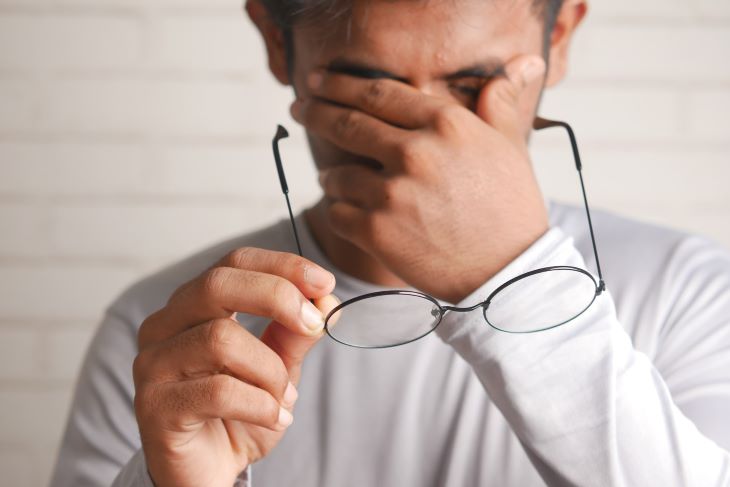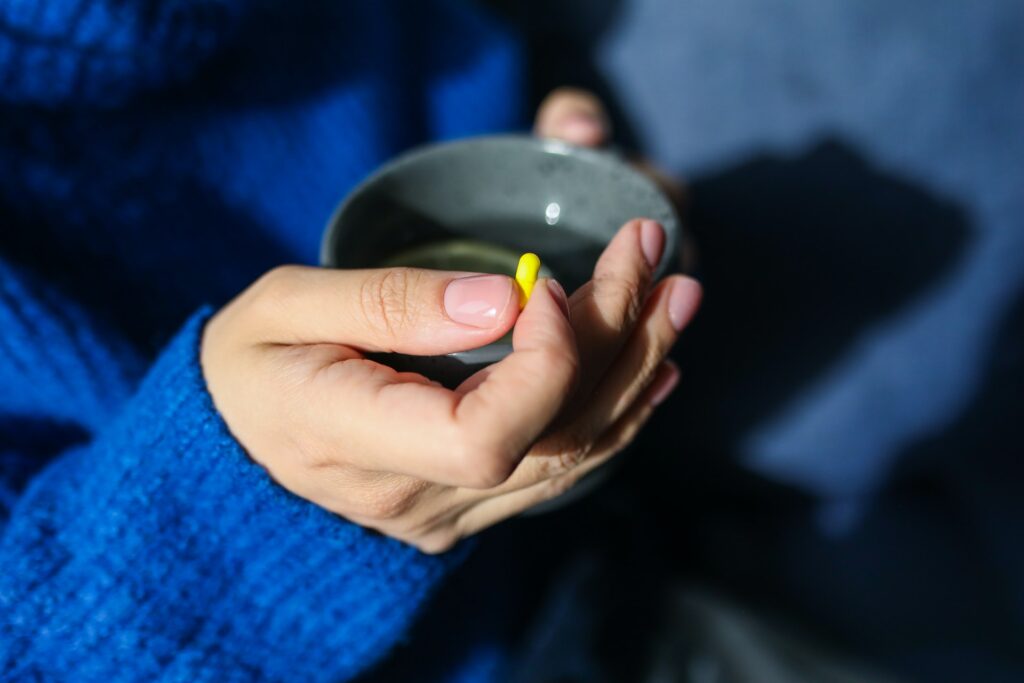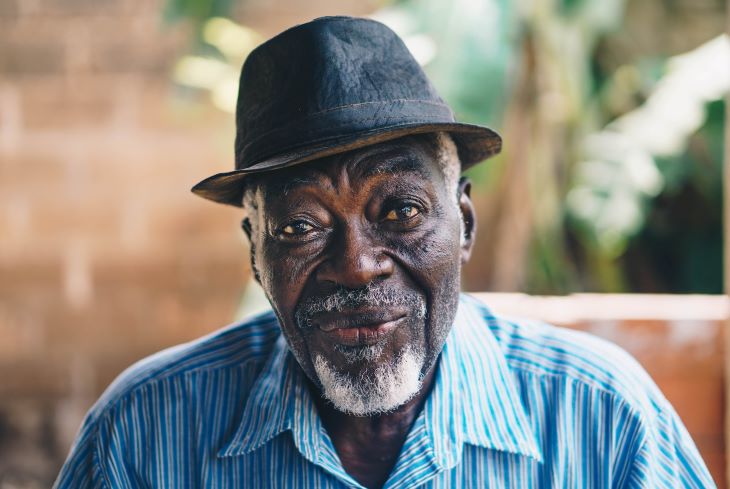Drug & Alcohol Rehab in Kensington
In the United Kingdom, it was estimated that around 275,896 adults [1] came into contact with a drug and alcohol rehab provider from April 2020 to March 2021.
Of this figure, only around 130,490 adults proceeded to undergo addiction treatment at a drug and alcohol rehab during this timeframe.
Furthermore, while over a quarter of a million of the population took the steps to reach out because they know that they are suffering from an addiction, there remains to be many more who are unwilling to accept their condition or seek help.
Not only that, but there remains to be many more people who are not yet diagnosed for their drug or alcohol addiction.
However, help is available, and many people have successfully recovered at a dedicated rehab in Kensington.

London and some of its boroughs in particular are not exempt from the effects of addiction. In Kensington & Chelsea, London, there were a total of 534 new presentations into treatment from 2019 to 2020. Of this statistic, 29% of the patients were parents [2].
When taking into account that Kensington & Chelsea is an area where around 20% of children [3] come from low income families, this exposes them not only to socioeconomic difficulty, but also drug and alcohol addiction.
Furthermore, the same study from Public Health England claims that the rates of homelessness and employment are far worse in Kensington & Chelsea when compared to England.
Around 66% of people who are homeless in the UK [4] attribute their living situation due to their substance use disorder.
Public Health England also estimates that while the rates of alcohol related harm to hospital admissions is better than the England average, the rates of being killed or injured on roads in Kensington & Chelsea are far higher than the national average.
In 2020, it was estimated that alcoholic substances were detected in the blood of 20% of drivers [5] involved in road accidents.
Cannabis is the most commonly detected illicit substance in drivers who were involved in road accidents.
Admissions Process – Entering a Rehab in Kensington & Chelsea

You have already taken the first step towards recovery, which is admitting that you are suffering from a drug or alcohol addiction.
The next step is to seek the support of addiction treatment services. Rehab Recovery can help you navigate the recovery process by helping you find the most optimal drug and alcohol rehab in Kensington & Chelsea for you.
The admissions process can seem daunting, especially when you are suffering from the discomforting symptoms of an addiction.
Rehab Recovery will help you by completing a health assessment, which is imperative towards the admission process, in order to help you find a treatment option and rehab facility which will maximise your responsiveness to treatment.
A health assessment simply requires the addicted person to answer questions about his or her substance addiction, symptoms, physical and mental health, medical history, and also any preferences they have when entering a drug and alcohol rehab in Kensington.
When you call us, you will be greeted by a friendly and experienced member of staff whose responsibilities are to help guide you through the process of finding the most optimal place for recovery.
At Rehab Recovery, we offer free advice from a team of non-judgemental professionals, many of whom are in recovery and understand how hard it can be to change your relationship with addiction.
For more information about rehab in Kensington, simply reach out to our 24/7, confidential hotline on 0800 088 66 86.
Symptoms of Drug and Alcohol Addiction

Drug and alcohol addiction, otherwise known as substance use disorder or substance addiction, can present a range of symptoms.
These symptoms can be categorised as physical, psychological, social, and many more:
1. Physical Symptoms of Addiction
Patients may suffer from a range of physical withdrawal symptoms while they are abstaining from their addictive substance. This can make it incredibly difficult to sustain abstinence.
Some of these physical withdrawal symptoms include but are not limited to headaches, fatigue, vomiting, diarrhoea, abdominal pain, and even seizures. They can cause complications which can lead to death.
Because of the high potential of harm or even mortality, it is important that patients who are suffering from severe physical symptoms undergo a medical detox at their drug and alcohol rehab in Kensington & Chelsea.
Long term physical illnesses include the development of a range of cancers and diseases. Alcoholic Liver Disease is a prominent illness among frequent and excessive drinkers, and is the leading cause of premature death in the United Kingdom.
At Rehab Recovery, we offer free advice from a team of non-judgemental professionals, many of whom are in recovery and understand how hard it can be to change your relationship with addiction.
For more information about rehab in Kensington, simply reach out to our 24/7, confidential hotline on 0800 088 66 86.
2. Psychological Symptoms of Addiction

Addiction can also lead to a range of mental health issues, in the short term and long term. Short term psychological symptoms of addiction include anxiety, depression, paranoia, insomnia, and so on.
If a person consumes their drug frequently and excessively, they may develop long term mental health problems such as anxiety disorder, bipolar disorder, clinical depression, schizophrenia, and so on.
Many different studies show a strong correlation between mental health issues and addiction.
Some people may consume drugs and alcohol in order to relieve them of the symptoms of their mental health issues, whereas others may develop mental health issues as a result of their addiction to drugs and alcohol.
3. Social Issues
As a result of their substance dependence and the mental health issues that can stem from the condition, patients may suffer from a range of social issues.
Social issues include but are not limited to social isolation, relationship breakdown, financial and housing insecurity, criminal offences, and so on.
People who are suffering from addiction may find that they do not partake in any of the things which previously interested them. They may also see that their academic or occupational performances suffer dramatically.
Inpatient vs Outpatient Treatment at Rehab

An addicted person will enter rehab either as an inpatient or an outpatient. There are notable differences between the two, and they should make their decision based on their unique requirements and preferences.
Rehab Recovery and addiction specialists will help determine whether you will benefit more from being an inpatient or an outpatient.
At Rehab Recovery, we offer free advice from a team of non-judgemental professionals, many of whom are in recovery and understand how hard it can be to change your relationship with addiction.
For more information about rehab in Kensington, simply reach out to our 24/7, confidential hotline on 0800 088 66 86.
1. Inpatient Treatment at a Residential Rehab

At a residential rehab [6], inpatients will have access to the highest quality treatment at a medically supported facility.
Here, they can undergo an intensive and comprehensive recovery programme for around 28 days at a residential facility which minimises relapse triggers.
Personalisation is also a huge factor when recovering from addiction, and the addiction specialists at a residential rehab will ensure that their treatment programme is personalised in order to optimise their long term recovery.
This will also address any mental health issues that patients have. When a patient is suffering from addiction and mental health issues, this is called co-occurring disorders.
Inpatient treatment will allow patients to undergo a medicated detox to help them overcome their withdrawal symptoms.
After the detox phase, they will be able to undergo a range of therapy, counselling, and relapse prevention planning at rehab.
Inpatient treatment at a residential rehab is optimal for patients who are suffering from a high likelihood of relapsing, severe withdrawal symptoms, mental health conditions, and so on.
These patients will require a higher level of medical supervision and to undergo the detox phase at a secure and medically supported facility.
2. Outpatient Treatment at Rehab

If a patient is suffering from a mild form of addiction, they will be able to undergo treatment as an outpatient [7]. This allows them more flexibility, fewer hours undergoing therapy, and it is typically cost free.
An outpatient programme requires patients to undergo around 6 hours of therapy and counselling per week.
However, if a patient is undergoing the intensive outpatient programme, they may be required to undergo up to 30 hours of treatment per week.
Outpatient treatment, while not as intensive as the inpatient programme, will require that patients undergo treatment for a longer span of time.
However, sessions typically accommodate the working schedule, meaning that most outpatients are able to maintain their employment throughout their recovery.
At Rehab Recovery, we offer free advice from a team of non-judgemental professionals, many of whom are in recovery and understand how hard it can be to change your relationship with addiction.
For more information about rehab in Kensington, simply reach out to our 24/7, confidential hotline on 0800 088 66 86.
Medicated Detox at a Drug and Alcohol Rehab in Kensington & Chelsea

A medicated detox will typically last around 7 days, however, patients with a more severe form of addiction may need to undergo a 10 day detox to recover successfully.
The purpose of the medicated detox is to help patients overcome their discomforting symptoms so that they can proceed and undergo a range of treatment, post detox.
Patients who suffer from intense withdrawal symptoms are not only susceptible to relapsing, but are prone to illnesses and injuries due to their addiction.
A medicated detox will help them overcome symptoms such as insomnia, anxiety, vomiting, seizures, and more.
There is a range of medication prescribed by an addiction physician available for patients.
These medications will treat symptoms such as anxiety, insomnia, cramps, seizures, epileptic fits, and so on. Patients will then be able to find more success with their recovery post detox.
Therapy at a Rehab in Kensington & Chelsea

Patients will undergo various forms of therapy in order to tackle different aspects of addiction. A comprehensive recovery programme will incorporate holistic treatment, behavioural therapy, family therapy, and much more:
- Cognitive Behavioural Therapy [8] (CBT): CBT is a highly effective form of therapy because it provides patients skills to deal with not only recovery but many aspects of life. The purpose of CBT is to help patients identify problems that they exhibit, and to replace them with healthier lifestyle habits.
- Dialectical Behavioural Therapy [9] (DBT): DBT is similar to CBT, but it focuses more on the emotional aspect of recovery. It is particularly beneficial for patients who are suffering from disorders with symptoms of intense emotions and thoughts, such as anxiety disorder, bipolar disorder, PTSD, and so on.
- Holistic Therapy [10]: A holistic approach to treatment can allow patients to improve their physical, spiritual, as well as mental health. Activities such as yoga, adventure therapy, massages, equine therapy, and so on, can trigger positive responses and behavioural activation which are effective in treating patients suffering from addiction, depression, and other conditions.
- Family Therapy: Incorporating the family into addiction treatment can be an effective way to reinforce the patient’s support network. This is done by improving the knowledge and skills which family members have for their loved one’s condition. Additionally, family therapy can offer counselling for those who have had to suffer witnessing their loved one’s health deteriorate due to addiction.
- Group Therapy: Interacting with other patients can combat social isolation and facilitate positive social reinforcement. Patients who are on the same path to recovery are likely to reinforce other people’s lifestyle of sobriety. Furthermore, discussing addiction and recovery to others who are listening can encourage emotional purging for patients.
At Rehab Recovery, we offer free advice from a team of non-judgemental professionals, many of whom are in recovery and understand how hard it can be to change your relationship with addiction.
For more information about rehab in Kensington, simply reach out to our 24/7, confidential hotline on 0800 088 66 86.
Aftercare in Kensington

Patients who undergo treatment at rehab will be able to continue their treatment as an outpatient through an aftercare programme. Following the completion of an addiction treatment programme, patients will continue to be supported.
An aftercare programme will grant patients access to fellowship programmes such as Alcoholics Anonymous [11], Narcotics Anonymous [12], SMART Recovery [13], and more.
Here, they will have access to new forms of support networks, and they will be able to undergo the 12-Step Programme, an active engagement strategy which helps former patients sustain their sobriety.
Studies show that patients who undergo aftercare and the 12-Step Programme are far more likely to sustain their recovery following rehab than those who do not.
At Rehab Recovery, we offer free advice from a team of non-judgemental professionals, many of whom are in recovery and understand how hard it can be to change your relationship with addiction.
For more information about rehab in Kensington, simply reach out to our 24/7, confidential hotline on 0800 088 66 86.
Kensington Charities & Alternative Services

Below are some of the free addiction facilities and groups in Kensington:
1. Club Drug Clinic
Address: 69 Warwick Rd, London SW5 9HB
Telephone: 02033173000
Website: http://clubdrugclinic.cnwl.nhs.uk/
2. Action on Addiction
Address: Rita Rd, London SW8 1AW
Telephone: 02077931011
Website: http://www.actiononaddiction.org.uk/
3. The New Coach House
Address: Griffin Court, London W12 7LL
Telephone: 02087406815
Website: http://wellbeing.turning-point.co.uk/centrallondon/hubs/hammersmith-fulham/
The NHS offers free information and resources you can browse if you need any extra support.
Addressing any mental health issues can help you to keep your relapse triggers in check. Reach out to Papyrus, Rethink Mental Illness, Young Minds Samaritans, or Mind for free wellbeing support.
Consider Your Options With Rehab Recovery

One of the greatest methods to overcome addiction is with the assistance of a professional drug and alcohol rehab programme.
Please get in touch with us if you have any questions about Kensington addiction treatment services, or would like more information about anything you’ve read today.
In the UK, there are numerous public and private rehab facilities available to assist you. We also offer admission to rehab clinics in and arround London, including in Tottenham, Twickenham, Uxbridge, Wandsworth, Watford, Barnet, Beckenham, Bexley, Brent Cross, Bromley, Camden, Croydon, Ealing, Enfield, Hackney, Hammersmith, Harlow, Harrow, Islington, Lambeth, Lewisham, Merton, Newham, Orpington, Redbridge, Romford, Richmond, Sevenoaks, Southwark, and Westminster.
The centres we recommend all come regulated and approved by The Care Quality Commission (England and Wales) or the Care Inspectorate (Scotland).
To take the stress out of choosing a rehab, call us today. Many members of the Rehab Recovery team have faced addiction themselves, and can offer a listening ear, advice and referrals.
For help finding a private rehab in Kensington, contact Rehab Recovery on 0800 088 66 86.

References
[1] Adult Substance Misuse Treatment Statistics 2020 to 2021: Report https://www.gov.uk/government/statistics/substance-misuse-treatment-for-adults-statistics-2020-to-2021/adult-substance-misuse-treatment-statistics-2020-to-2021-report
[2] Parents With Problems – Alcohol and Drugs: Data for England: Data for England and Kensington and Chelsea, 2019 to 2020 https://www.ndtms.net/resources/public/Parental%20substance%20misuse/London/LN_Kensington%20and%20Chelsea_2019-20_Parental_substance_misuse_data_pack.html
[3] Kensington and Chelsea – Local Authority Health Profile 2019 https://fingertips.phe.org.uk/static-reports/health-profiles/2019/E09000020.html?area-name=Kensington%20and%20Chelsea
[4] Drugs and Alcohol – Crisis UK https://www.crisis.org.uk/ending-homelessness/homelessness-knowledge-hub/health-and-wellbeing/
[5] Reported Road Casualties in Great Britain, Final Estimates Involving Illegal Alcohol Levels https://www.gov.uk/government/statistics/reported-road-casualties-in-great-britain-final-estimates-involving-illegal-alcohol-levels-2020/reported-road-casualties-in-great-britain-final-estimates-involving-illegal-alcohol-levels-2020
[6] Residential Addiction Treatment – Rehab Recovery https://www.rehab-recovery.co.uk/addiction-treatments/residential-addiction-treatment/
[7] Outpatient Addiction Treatment – Rehab Recovery https://www.rehab-recovery.co.uk/addiction-treatments/outpatient/
[8] Cognitive Behavioural Therapy in Addiction Treatment – Rehab Recovery https://www.rehab-recovery.co.uk/addiction-treatments/cognitive-behavioural-therapy/
[9] DBT for Addiction Treatment – Rehab Recovery https://www.rehab-recovery.co.uk/addiction-treatments/dbt/
[10] Alternative & Holistic Therapy for Addiction – Rehab Recovery https://www.rehab-recovery.co.uk/addiction-treatments/alternative-holistic/
[11] Alcoholics Anonymous – Rehab Recovery https://www.rehab-recovery.co.uk/addiction-treatments/alcoholics-anonymous/
[12] What is Narcotics Anonymous – Rehab Recovery https://www.rehab-recovery.co.uk/addiction-treatments/narcotics-anonymous/
[13] SMART Recovery: What Is It and How Can It Help? https://www.rehab-recovery.co.uk/addiction-treatments/smart-recovery-what-it-is-and-how-it-can-help/


